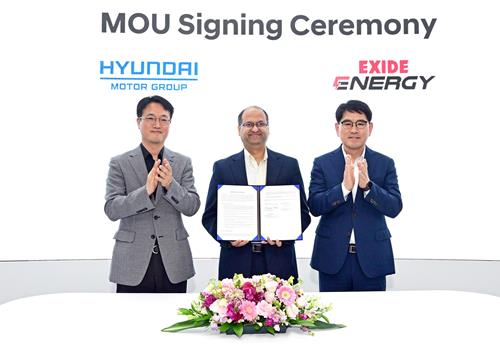Suzuki to make electric and hybrid cars in India for export
Along with fresh investment of Rs 3,800 crore in its Gujarat plant, SMC, Toshiba and Denso are to manufacture lithium ion batteries that will power hybrids and EVs for export to global markets.
Japanese prime minister Shinzo Abe’s visit to Ahmedabad, Gujarat and his meeting with his Indian counterpart Narendra Modi today has seen an increase in investment and cooperation between the two countries.
In 2016-17, Japanese investment in India was worth $ 4.7 billion and 80 percent more than in the previous year, making Japan the third largest investor in the country.
Japanese automaker Suzuki Motor Corporation, which has 56.21 percent stake in the country’s largest carmaker Maruti Suzuki India, has announced expansion of its capacity at its plant in Hansalpur, Gujarat, along with laying the foundation stone for the country’s first lithium-ion battery manufacturing plant.
The new investment in enhancing capacity of the Hansalpur plant will take the company's total investment in the facility to around Rs 13,400 crore, where it has already put in Rs 9,600 crore on two assembly lines along with another engine and transmission production unit. The Hansalpur-based plant is Suzuki Motor Corp's first wholly-owned unit in India.
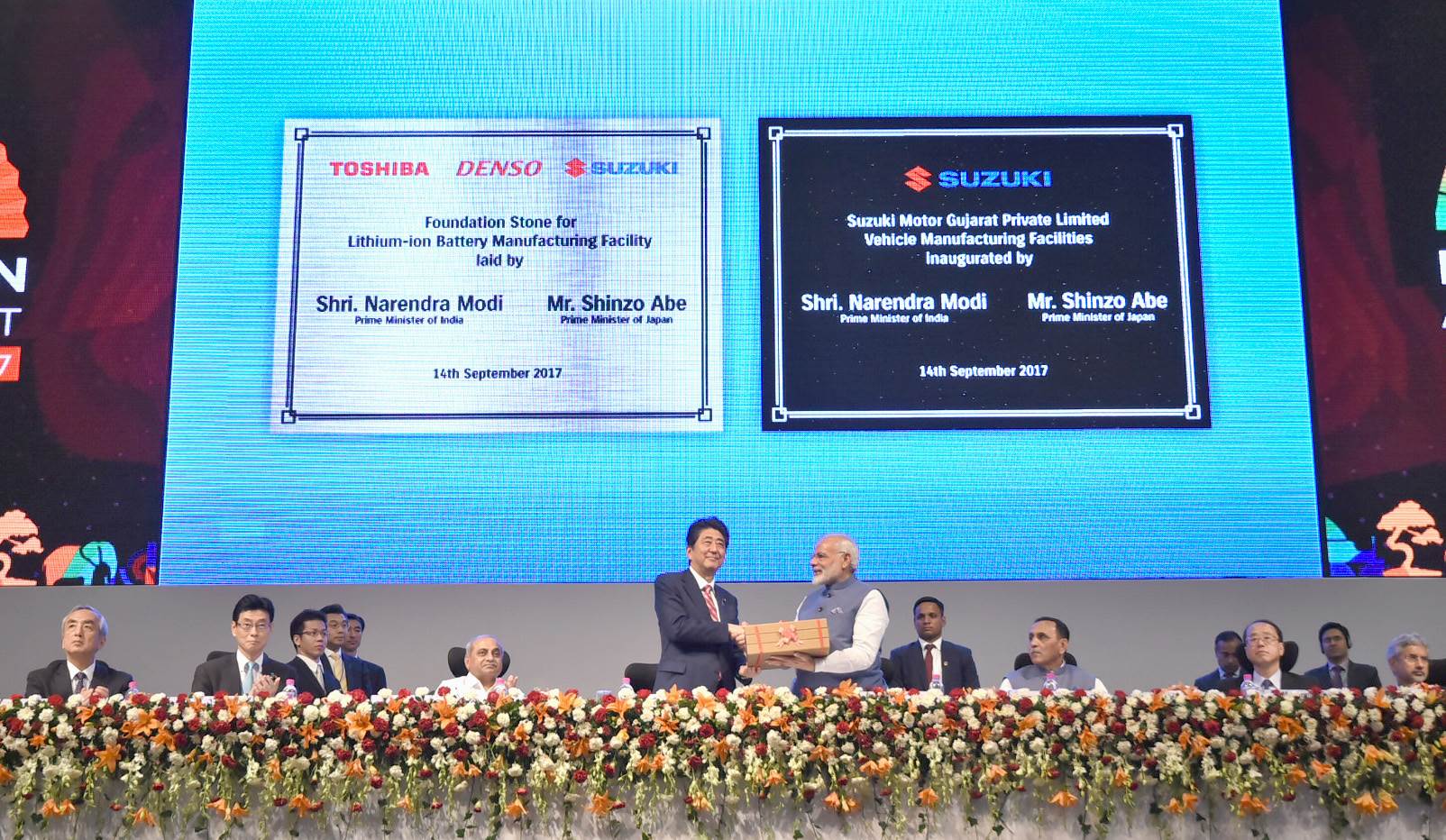
Prime minister Narendra Modi and Japanese prime minister Shinzo Abe inaugurate Suzuki Motor Gujarat's vehicle manufacturing plant and lay the foundation stone for the (Suzuki-Toyota-Denso) lithium ion battery manufacturing facility in Hansalpur.
The day saw the prime ministers of the two countries officially inaugurate Suzuki Motor Gujarat's manufacturing plant for cars and engines in Hansalpur, Gujarat and lay the foundation stone for India’s first lithium-ion battery plant, being set up jointly between Suzuki Motor, Toshiba and Denso for making electric and hybrid cars in India for the world.
Suzuki Motor Corporation has invested nearly $530 million (Rs 3,348 crore) in its first assembly line at the Gujarat facility, while a total of $180 million (Rs 1,137 crore) has been invested between Toshiba, Denso and Suzuki for the lithium-ion battery manufacturing plant that is slated to be ready by 2020.
The manufacturing operation will utilise cell modules from Toshiba, while Denso will contribute its expertise by sharing the technology platform. The battery joint venture sees the equity stake split between Suzuki (50%), Toshiba (40%) and Denso (10%). Suzuki Motor Corporation, which is the main driver for the JV, will be aiming to drive home the advantage of manufacturing lithium-ion batteries in its key global market – India – where the government is keen there is greater adoption of electric vehicles (EVs).
The lithium-ion battery manufacturing plant will manufacture and supply EV batteries to the Suzuki plant in Gujarat, which will manufacture electric and hybrid cars for exports. Given the heightened focus on all-electric mobility in India by the year 2030, Maruti Suzuki India will gain sizeably from this all-Japanese JV.
According to Osamu Suzuki, chairman, Suzuki Motor Corp, the batteries will be used for "hybrid vehicles manufactured in India and export of these genuinely manufactured-in-India vehicles to international markets."
The plant is expected to be operational from 2020, he said adding, "We plan to continue with our efforts to promote make-in-India program further".
Eye on EVs
Maruti Suzuki India, which has a commanding 50.87 percent share of the Indian passenger vehicle market (April-August 2017), seems to have an eye on the future EV market in the country. Addressing shareholders at the company AGM on September 6 and commenting on plans for EVs, chairman R C Bhargava had said: “Your company will not hold back in the segment. As soon as we can determine the customer preference, we will come up with such models. In the meantime, focus will be to increase fuel efficiency (in current models) and bring in new technologies.”
On September 8, at the ACMA Convention in New Delhi, Bhargava had revealed that Maruti is targeting sales of 2.5 million units by FY2022-23. And, with the new Gujarat plant going on stream, it will have the manufacturing capacity to tap the growth in the domestic market.
It is understood that Maruti is now actively considering a fourth assembly line for the Gujarat plant, which will have another two assembly lines of 250,000 units each by 2019. Thus, with a total capacity of a million units at the Gujarat plant, Maruti's overall capacity across three plants will stand augmented to 2.5m units. Bhargava said, “We've commissioned the first assembly line (250,000 units) at the Gujarat plant. Work is underway on the second and third lines.”
Speaking on electro-mobility and the government focus on EVs, he said, “We need to reduce dependency on energy imports, hence this is a timely move on technology but we need conducive policies. While the government has to enable mass scale electric mobility, the auto industry has the responsibility of making electric vehicles acceptable to existing vehicle users in the Indian market. We have to move towards larger use of EVs and as an industry we should encourage them.”
“Customers should be able to use their car wherever and whenever they want to,” said Bhargava. However, he added, that while electro-mobility increases in India, export of IC engined-vehicles will continue to certain markets like Africa and oil exporting countries, which might not promote the use of EVs.
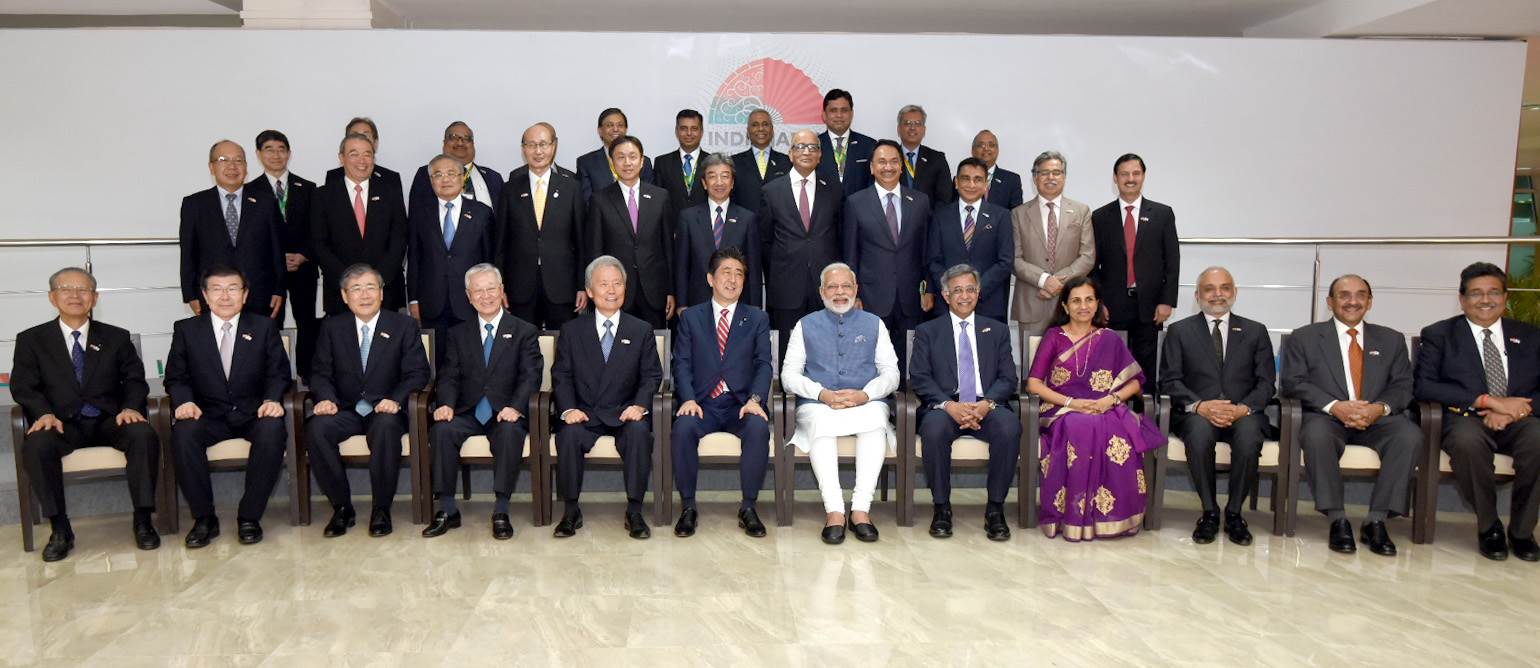
Prime minister Narendra Modi and the prime minister of Japan, Shinzo Abe with the members of India-Japan Business Leaders Forum, in Gandhinagar, Gujarat today. (Photos: PIB)
RELATED ARTICLES
IIT Bombay inaugurates Arun Firodia Research Floor
IIT Bombay, one of India’s top technical and research institutions, honours Kinetic Group chairman Dr Arun Firodia, one ...
Maruti Suzuki expands capacity at Manesar plant by additional 100,000 units
New assembly line at Plant A expands total manufacturing capacity at the Manesar plants to 900,000 units per annum. Alon...
Hyundai and Kia partner Exide Energy to produce LFP batteries in India
Partnership with Exide Energy enables Hyundai Motor and Kia to equip future EVs in the Indian market with locally produc...





 14 Sep 2017
14 Sep 2017
 11485 Views
11485 Views



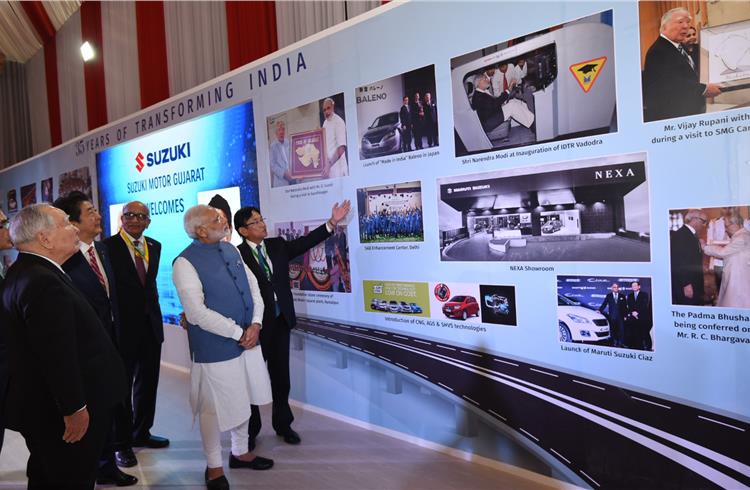
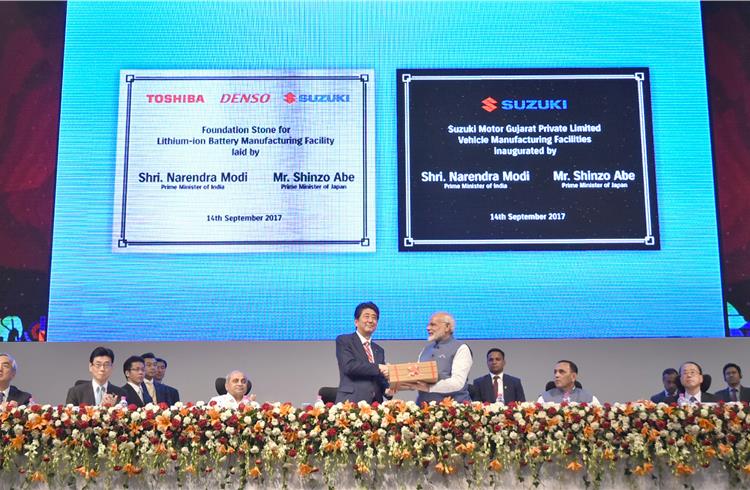

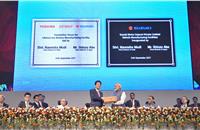

 Autocar Pro News Desk
Autocar Pro News Desk


